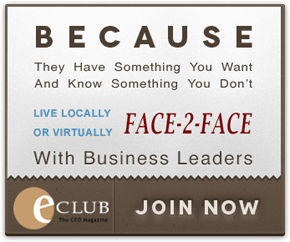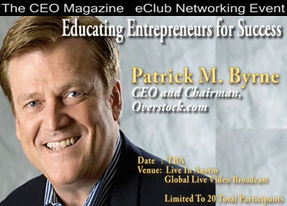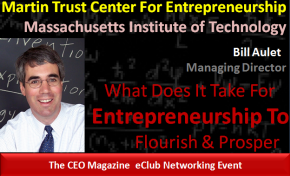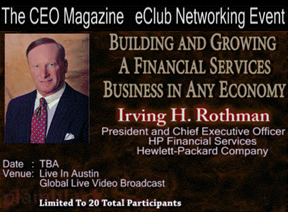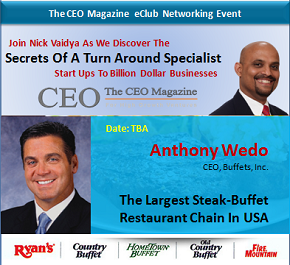You are here
- Guest Blogger |
- Leadership - Management |
- Tue, 09/24/2013 - 19:18

Dr. Victor Allis, CEO, Quintiq
In the modern workplace, creating a corporate culture that helps engage employees is a hot topic, and has become a key factor in improving workforce retention and productivity. Yet as companies develop strategies to better engage their workforce, they often miss the opportunity to reevaluate company values and reflect on how employees validate their identity and stake within the company.
At Quintiq, our company’s values are based on the power of choice – from the moment you start working for the company we trust you to make the right ones. This is crucial to the development of an employee as they become familiar with the work and get integrated with their teams. Employees should never have to worry about being questioned on the reasoning behind their actions or its intentions. We trust our people to be themselves.
In exchange for this promise of trust we ask our workforce to participate in open communication. Being able to express both positive and negative thoughts without fear of repercussions allows for a better work flow and collaboration between teams. If you believe it’s necessary to take a business trip, there is no convoluted, official approval process. Instead, you are encouraged to discuss with your team and if you present a business case no one will stop you.
Implementing the “Quintiq culture” across our global workforce challenged me and my executive team to better define what the company stood for. We debated the best method to explain our culture that would not look like rules for our employees and embraced the thought that the way you behave reflects who you are and what you want. For this reason we developed our Core Freedoms of Quintiq Culture:
- Passion: At the core of our business is passion. We don’t create it. We hire people who have it. We embrace the passion of our employees and create an environment where employees feel free to display it – never stifling it. Creating healthy competition is one way we keep the passion and spirit healthy across the company.
- Innovation: Regardless of their position within the company, every employee has the freedom to develop new ideas and share them with the team. These can be as simple as suggesting a change in a plan, or as intricate as tabling an idea for a new strategy concept for customer success. There are no barriers to innovation and no communication streams are out of bounds.
- Collaboration: Collaboration with teams as much as possible is encouraged. While collaboration is seen by some as inefficient, I believe that working together, and challenging each other gives us the best outcomes. If two employees work on a project together as opposed to separating tasks, the space for error is minimized and their efficiency can be maximized because two people are able to contribute and review simultaneously. At Quintiq we employ the five-minute rule: if you are working on something for five minutes and are unable to figure it out, go ask someone for help!
- Integrity: This one is straightforward. Our staff was chosen to be a part of the team because we trust that they have the company’s best interests at heart. From here, it is their choice to uphold that trust in daily actions and hold themselves responsible if they slip.
- Respect & Discipline: Each and every Quintiq employee deserves respect from their colleagues. Just as we trust in each person’s integrity, so too do we trust in their discipline and standards of respect.
- Customer Delight: To round out our freedoms, we trust that each employee will make the right choices toward overall customer satisfaction. At the end of the day we are all working toward the same goals as a team. If each person acts to support the team first rather than for personal advancement, they are ultimately improving the customer/client relationship which benefits the business as a whole.
Each of these freedoms is communicated to our employees as a personal decision. The hope is that each person will make positives choices for themselves and the company. This has been instrumental in maintaining our company culture across the globe and breaking down cultural barriers that may inhibit some workplaces. I strongly believe it is a successful approach - Quintiq’s overall very low attrition rate proves that these freedoms make our employees feel valued, engaged and empowered by the company to contribute towards its continued success.
About the Author
 It’s no surprise that Victor is the CEO of a company known for solving puzzles. He’s been a puzzle fanatic all his life. He describes the day he was given his first Rubik’s cube as one of the best days of his life up to that point. (He solved it later the same week, of course.) From 1995–1998 Victor worked for Bolesian as a senior consultant and manager. It is here that Victor met Wido-Bart van Steenbergen and Paul-Erik Raue who helped him in establishing Quintiq in 1997. Victor is also a well-known computer scientist in the field of artificial intelligence, with more than 30 publications to his name. He has been credited with creating AI solutions for the games Connect Four, Qubic and Go-Muku. Prior to working in the IT industry, Victor held the post of Assistant Professor of Artificial Intelligence at the Vrije Universiteit in Amsterdam from 1993–1995. Victor holds a PhD in Artificial Intelligence from the University of Maastricht and a Master’s degree in Computer Science from the Vrije Universiteit in Amsterdam.
It’s no surprise that Victor is the CEO of a company known for solving puzzles. He’s been a puzzle fanatic all his life. He describes the day he was given his first Rubik’s cube as one of the best days of his life up to that point. (He solved it later the same week, of course.) From 1995–1998 Victor worked for Bolesian as a senior consultant and manager. It is here that Victor met Wido-Bart van Steenbergen and Paul-Erik Raue who helped him in establishing Quintiq in 1997. Victor is also a well-known computer scientist in the field of artificial intelligence, with more than 30 publications to his name. He has been credited with creating AI solutions for the games Connect Four, Qubic and Go-Muku. Prior to working in the IT industry, Victor held the post of Assistant Professor of Artificial Intelligence at the Vrije Universiteit in Amsterdam from 1993–1995. Victor holds a PhD in Artificial Intelligence from the University of Maastricht and a Master’s degree in Computer Science from the Vrije Universiteit in Amsterdam.
Comments
Follow The Blog
Blog Categories
- Business Ops. (45)
- Editors (3)
- Entrepreneurship (196)
- Finance (25)
- Leadership (529)
Blog Authors
- Guest Blogger (835)
- Cynthia Kay (92)
- Linda Henman (78)
- Dianna Booher (46)
- Craig Ross (31)





